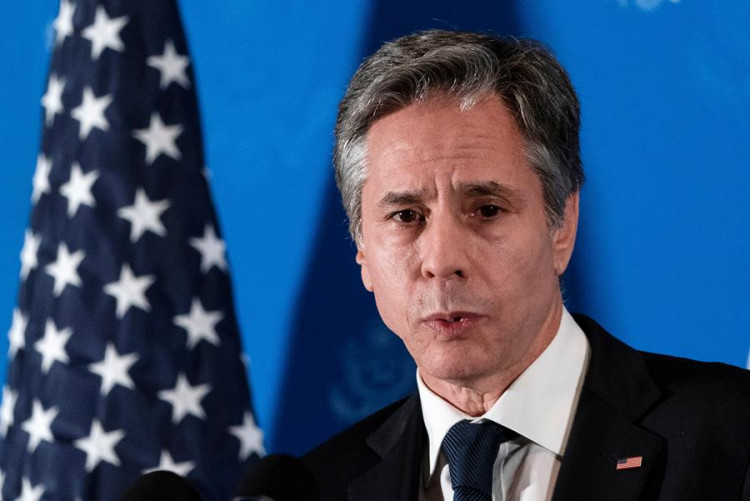US Secretary of State Antony Blinken touched down in Doha, Qatar, on Tuesday for talks with key mediators after Hamas gave its response to a US-led proposal for a cease-fire and hostage deal in war-torn Gaza. Blinken, on a four-country tour of the Middle East to push for acceptance of the truce plan, is set to meet with Qatar's top leadership, who have been transmitting messages to the Palestinian militant group.
Hamas, responding to the plan laid out by President Joe Biden on May 31, proposed amendments late Tuesday, including a timeline for the cease-fire and a complete withdrawal of Israeli troops from Gaza, according to a source familiar with the talks. The Biden plan calls for an Israeli withdrawal from "major population centers" and a six-week cease-fire, which would then be extended as negotiators work towards a permanent deal.
White House officials said Tuesday that the United States was "evaluating" Hamas' reply. "We're in receipt of this reply that Hamas delivered to Qatar and to Egypt, and we are evaluating it right now," stated John Kirby, White House national security spokesman.
The foreign ministries of Qatar and Egypt, both key mediators alongside the United States, confirmed receiving Hamas' response and said mediators were studying it. Hamas spokesman Jihad Taha said the response included "amendments that confirm the cease-fire, withdrawal, reconstruction, and (prisoner) exchange," without elaborating further.
While supporting the broad outlines of the deal, Hamas officials have expressed wariness over whether Israel would fully implement its terms, particularly provisions for an eventual permanent end to fighting and a complete Israeli withdrawal from Gaza in return for the release of all hostages held by the militants.
Blinken, during his eighth visit to the region since Hamas' attack on southern Israel in October, has been putting pressure on the group to accept the proposal. "Everyone's vote is in, except for one vote, and that's Hamas," Blinken told reporters in Tel Aviv after meeting with Israeli officials.
In a joint statement, Hamas and the smaller Islamic Jihad militant group said they were ready to "deal positively to arrive at an agreement" and that their priority is to bring a "complete stop" to the war. Osama Hamdan, a senior Hamas official, told Lebanon's Al-Mayadeen television that the group had "submitted some remarks on the proposal to the mediators."
The proposal has raised hopes of ending an 8-month conflict in which Israel's bombardment and ground offensives in Gaza have killed over 37,000 Palestinians, according to Palestinian health officials, and driven some 80% of the population of 2.3 million from their homes. Israeli restrictions and ongoing fighting have hindered efforts to bring humanitarian aid to the isolated coastal enclave, fueling widespread hunger.
Later Tuesday, Blinken attended a Gaza aid conference in Jordan, where he announced over $400 million in additional aid for Palestinians in Gaza and the wider region, bringing the total U.S. assistance to more than $674 million over the past eight months. U.N. Secretary-General António Guterres told the gathering that the amount of aid flowing to the United Nations in Gaza for distribution has plummeted by two-thirds since Israel launched an offensive in the territory's southern city of Rafah in early May.
The transition from the first to the second phase of the cease-fire plan appears to be a sticking point. Hamas wants assurances that Israel will not resume the war, while Israel wants to ensure that protracted negotiations over the second phase do not prolong the cease-fire indefinitely while leaving hostages in captivity.




